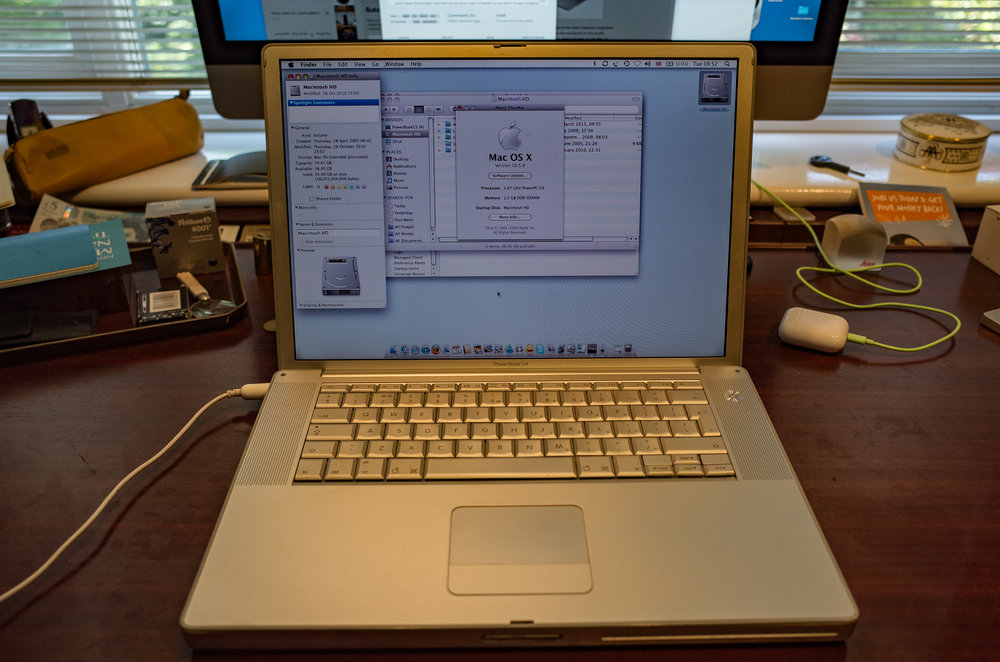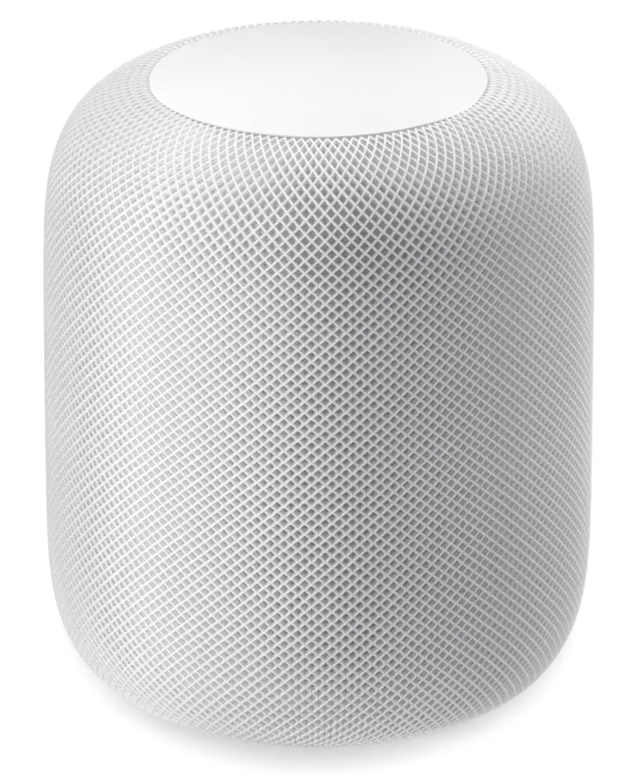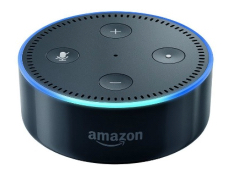I keep a recurring diary note for June 16 to remind me that I have been a Mac user since this day in 2005. It seems a small thing, but it was an important milestone in my computing career. It also led indirectly to the start of Macfilos which, in 2008 started life as a commentary on technology in general and Mac in particular. Since then I have segued predominately into photography but I still remember to write a few posts on technology as the fancy takes me.

But back to 2005. Throughout the latter part of my working life, Windows in its various guises was the operating system I favoured. I had tried Macs but didn’t like them — there is no doubt that earlier Macs were somewhat quirky and alien to those who had grown up in the Microsoft camp.
Defection
My defection to Mac came about quite by accident. I had been casting an eye over the Apple world for a year or two when, in mid 2005, a friend told me he had bought a Mac mini for £299 and had connected it to an existing monitor and keyboard. He was enthusiastic, I was less so. But he pointed out that Apple had a full refund policy — as it still does — and that I could try out a mini for a couple of weeks and then return it if I didn’t favour the experience. Paradoxically, my friend did just that. After infecting me with the Apple virus he decided to get his money back.

So it was that 12 years ago today I walked into the Apple Store in London’s Regent Street for the first time. Previously I hadn’t known it existed. I was immediately impressed with the layout and the knowledgeable staff. I paid for the mini and carried the tiny box home.
Within an hour I was up and running and liking what I saw. In fact, in under a day I had decided to change over entirely to Mac. This wasn’t as easy as it sounds, though. It turned out that I would be saddled with Windows in one way or another for a few years more.
But my main computing platform became the Mac mini. Within three days I was back at the Apple Store buying a 15in PowerBook G4 laptop — which I still keep for old times’ sake. It still works when switched on, but it weighs a ton and is loaded with some long-forgotten version of the operating system. One for the museum, I think. In short order after that Damascene moment, a Cinema Display and a keyboard and mouse for the mini arrived. By the end of July I was an Applefanboy, red in tooth and claw, seeking ways of extricating myself permanently from the troublesome world of Windows.
It wasn’t easy at the time. I jumped on Apple’s bandwagon just at the point where Macs were moving from the almost exclusive domain of the enthusiast to the wider pastures of general acceptance. There was still relatively little software for Macs, especially for someone used to the wonderful (in the prolific sense) world of Windows. Some specialist tasks, in particular the running of my then accounts system, were just not easy on the Mac 12 years ago.
For a time I kept my old Sony laptop as a backup and for use with certain legacy applications, including, for a time, my accounts system. Eventually I purchased a Windows emulator for Mac and was able to run those applications which I couldn’t replicate with native software.
Good riddance
Such problems soon disappeared, although it was at least six years before I could completely rid myself of the emulator. My tax calculation program, TaxCalc, stubbornly resisted Macisation until just a few years ago. Before the Mac version was available I had to use the emulator. It got to the point where the emulator was fired up just once a year to handle my tax return. It was a nuisance because, after a full year I’d forgotten the basics of using the emulator. On the day TaxCalc announced a Mac version I deleted he emulator with great ceremony and uttered a sighed of relief.
By this time Macs had become mainstream. A headcount at a typical Starbucks would typically result in seven Macheads out of ten laptop users. Macs came to dominate the student scene. Apple was considered the darling of the geeks, offering a grown up, intelligent approach to its customers, explaining things and not leaving the customer out on a limb as was often the case with Windows. Easy service and access to local Apple Stores obviously helped. But the great benefit of the Mac was its relative immunity to malware. More significantly, the halo effect of first the iPod and then the iPhone did more than anything persuade waverers to migrate to the Mac. After sampling and liking the iPhone, users welcomed the Mac’s operating system with its tight integration with their new go-to portable computer.

In the past two or three years, though, this advantage has been gradually whittled away as Windows (and to some extent, Google’s Chromebook) have won wider acceptance among the cognoscenti. Malware is an increasing threat, but by no means as dangerous as it is for the typical Windows fan. The most significant reason, I believe, is Apple’s dumbing down of the Mac in the wake of the success of the iPhone and iPad. Less attention as been paid to Macs, far more to iOS which, undertandable, it the major money earner.
I believe, though, that Apple ignores the Mac at its peril. Applications such as iTunes and Photos have become intrusive and annoying; and a number of pro products such as Aperture, have been ditched in favour of lesser, more widely focused general applications. Mac computers have recently taken a back seat, the Mac Pro especially so. Apple is in danger of losing a generation back to other operating systems unless it puts some real muscle behind the Mac. The over-emphasis on iOS is at the expense of the Mac. While it can be justified in the light of market share, it is a fundamental disservice to the people who supported Apple so faithfully in the past. If Apple loses the opinion leaders, undoubtedly the rest will follow.

Despite all this, I am not about to defect to another operating system. I have always liked Apple’s comprehensive commitment to hardware and software, in direct contrast to the Microsoft franchise model. But Microsoft is fighting back. The Surface is a very attractive and competent device and there are rumours that the Redmond giant is eyeing further expansion into hardware. Admittedly, the company’s stores, designed to take on Apple at its own game, were an abject failure, but that doesn’t let Apple off the hook or justify any sort of complacence.
Ecosystem
Apple’s main strength undoubtedly lies in its unparalleled ecosystem. Most people don’t think about this aspect any more and that in itself is a tribute. They just accept that everything synchronises and, by and large, it all works well. Indeed, membership of the Apple ecosystem is perhaps the major reason to stay faithful. It helps sell more iPhones even when the allure of competitors is strong and prices cheaper. People like the safety and reliability of the Apple system and will keep coming back for more — unless Apple really makes a dog’s dinner of its hardware offerings.
So, after twelve years with Apple I am as committed as ever; but I am by no means unaware of the advances being made by other technology companies. Apple has lagged behind in several areas – voice interaction, for instance. Siri was seen as revolutionary when it was introduced, but now Apple is now no longer supreme. I have to confess I prefer Alexa to Siri and have just added a few more Echo Dots to the household. Will I buy the Apple HomePod when it becomes available in December? I’m not sure this time round. Alexa does a good job, even though I have so far resisted being dragged any deeper into the Google infrastructure. HomePod comes late, if not too late, is very expensive (compared with Amazon’s Echo and Dot). At the moment, too, I don’t much care for Siri.
Could Alexa be the start of the rot for me after 12 years? I don’t really think so, and I hope not. But the world is no longer all Apple’s to rule. Tim Cook and his colleagues need to try just a little bit harder.
______________

I had some thoughts around what appeared to me to be the Windozisation of the Apple desktop (Aqua) when Lion came along. The reality is that they are both pretty awful, bearing in mind what we are mostly doing with them, Apple is just so much less awful. Some of it is not their fault of course, for some of the stodgiest of stodge, we need look no further than “government”, who want to own our data.
In order to try to unravel some of the Windobloat that began with Lion, I started to try to bring uses of iTunes and Photos to a minimum. Apart from their now open “.dng” raw file implementation, I am also allergic to Adobe for the same reason. All seem to want to take over one’s data.
"Finder" is the original Macintosh program, and it is still your man. I use the finder to organise my music (.flac) and Linn open source software to play it. I use VLC to watch a film and Handbrake to rip from silver disk, and XLD to rip and tag .flac files from CD’s, the digital downloads are usually pre-prepared.
I use Iridient Developer to create any conversions from raw that I want. A temporary file is created if one is making changes to that raw data, which can then be saved or dumped when finished. I use finder to organise my photos and it uses Preview as the default viewer.
Should something need to be removed from an image for display or printing, like sensor dirt, I am still looking for my ideal app, but I am currently using something called Inpaint which makes it possible to completely alter the contents of a picture. Since I only want to remove specks of dirt, it is not really the ideal program.
I am hoping that a Kickstarter project called "FilmLab" will succeed, it aims to manage the digital side of photographic hybridisation, hitherto known as "scanning negatives". If it succeeds, such speck removal could be managed at the time his software creates the raw file.
I suppose really what I do, is constantly fight against these behemoths, but I suspect that one could just as easily let Apple take the strain, something that I would never expect Windows to manage.
This is all good stuff, Stephen, but I can tell you enjoy fiddling and working this out. The vast majority of computer or smartphone users don’t want to get into such detail and this why Apple continues to dumb down in the interest of the majorly. In some ways it makes life easier but in many ways it means a loss of direct control. It’s a difficult line to walk.